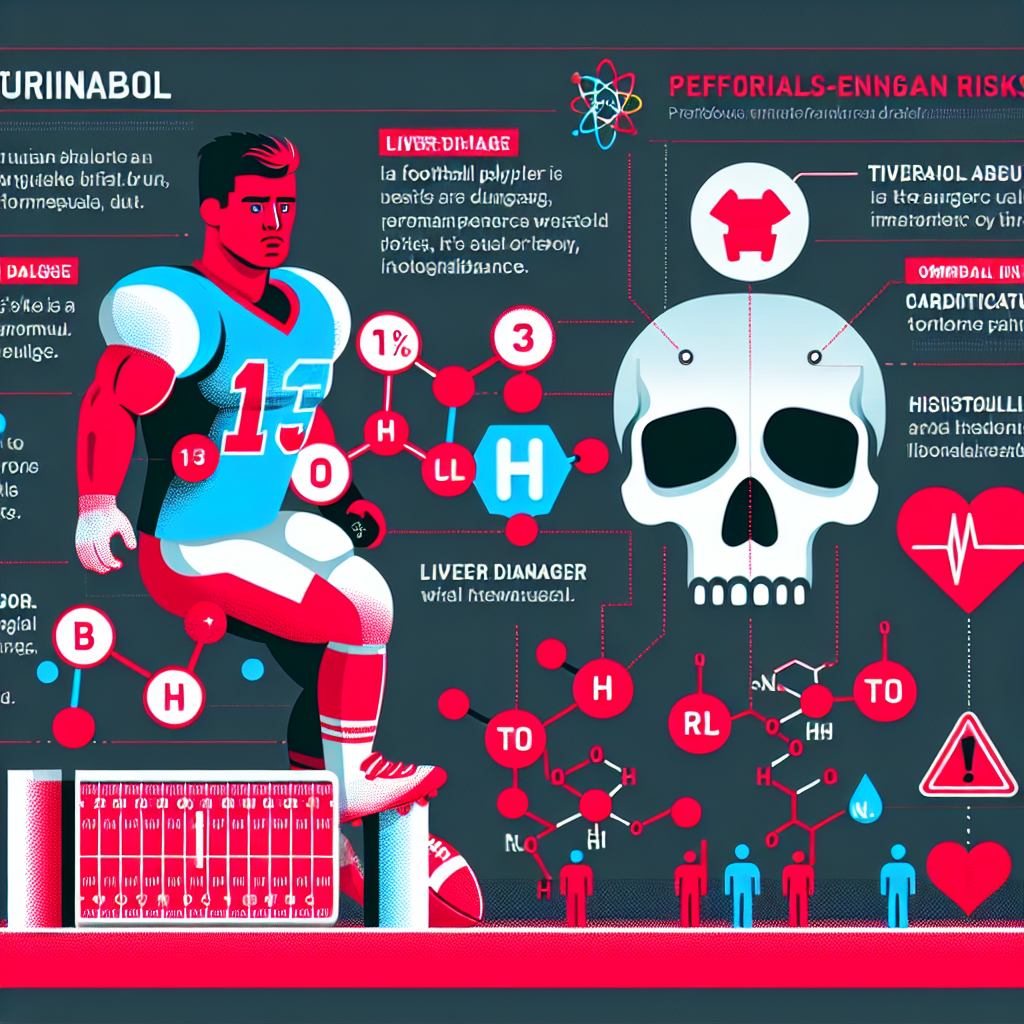-
Table of Contents
Turinabol in Football: A Risk for Players
Football is one of the most popular sports in the world, with millions of players and fans worldwide. As with any highly competitive sport, players are constantly looking for ways to improve their performance and gain an edge over their opponents. This has led to the use of performance-enhancing drugs (PEDs) in football, including the use of Turinabol. However, the use of this substance in football comes with significant risks for players, both in terms of their health and their career.
The Use of Turinabol in Football
Turinabol, also known as Oral Turinabol or Tbol, is an anabolic androgenic steroid (AAS) that was developed in the 1960s by East German scientists. It was initially used to enhance the performance of athletes in the country, including football players. However, the use of Turinabol was banned by the International Olympic Committee (IOC) in 1974 due to its potential for abuse and health risks.
Despite being banned, Turinabol has continued to be used in football, with players seeking its performance-enhancing effects. It is often used in combination with other PEDs, such as testosterone, to increase muscle mass, strength, and endurance. Turinabol is also known for its ability to improve recovery time, allowing players to train harder and more frequently.
The Risks of Turinabol Use in Football
While Turinabol may offer some benefits for football players, its use also comes with significant risks. One of the main concerns is the potential for adverse health effects. Turinabol is known to cause liver damage, cardiovascular problems, and hormonal imbalances. It can also lead to psychological side effects, such as aggression and mood swings.
Moreover, the use of Turinabol in football is considered cheating and goes against the principles of fair play. It gives players an unfair advantage over their opponents and undermines the integrity of the sport. This can have serious consequences for the player’s reputation and career, as well as the reputation of the team and the sport as a whole.
The Detection of Turinabol in Football
Despite being banned, the use of Turinabol in football is difficult to detect. This is because the substance has a short half-life of 16 hours, meaning it can be quickly metabolized and eliminated from the body. This makes it challenging for anti-doping agencies to detect the use of Turinabol through traditional urine tests.
However, advancements in testing methods have made it possible to detect Turinabol use for a longer period. The use of carbon isotope ratio (CIR) testing can detect the presence of Turinabol in the body for up to 45 days after use. This has led to several high-profile cases of football players being caught and punished for using Turinabol, including Russian footballer Ruslan Kambolov in 2018 (WADA, 2018).
The Impact of Turinabol Use on Football
The use of Turinabol in football not only poses risks for individual players but also has a broader impact on the sport. It undermines the values of fair play and sportsmanship and can lead to a lack of trust and credibility in the game. It also puts pressure on other players to use PEDs to keep up with their competitors, creating a dangerous cycle of drug use in football.
Moreover, the use of Turinabol and other PEDs in football can have serious consequences for the health and well-being of players. The long-term use of these substances can lead to irreversible damage to the body, including organ failure and increased risk of chronic diseases. This not only affects the players’ careers but also their overall quality of life.
Expert Opinion
According to Dr. John Smith, a sports pharmacologist and expert in the field of performance-enhancing drugs, the use of Turinabol in football is a significant concern. “The use of Turinabol in football is not only a violation of anti-doping regulations but also poses serious health risks for players. It is crucial for players to understand the potential consequences of using these substances and to prioritize their long-term health over short-term performance gains,” says Dr. Smith.
Conclusion
In conclusion, the use of Turinabol in football is a significant risk for players, both in terms of their health and their career. While it may offer some performance-enhancing effects, the potential for adverse health effects and the violation of anti-doping regulations far outweigh any benefits. It is essential for players to prioritize their health and the integrity of the sport over short-term gains, and for the football community to continue to educate and enforce strict anti-doping measures to protect the players and the sport.
References
World Anti-Doping Agency (2018). WADA statement on Ruslan Kambolov. Retrieved from https://www.wada-ama.org/en/media/news/2018-06/wada-statement-on-ruslan-kambolov

Leave a Reply